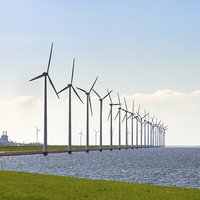Governance as a Key Agenda in Local Energy Transition
Vice-President Prof. Dr. Manfred Fischedick publishes chapter in the book "Reframing Urban Energy Policy"

Vice-President Prof. Dr. Manfred Fischedick publishes chapter in the book "Reframing Urban Energy Policy"

As cities representing more than half of the global population are the origin of around 60 per cent of current global energy consumption and more than 70 per cent of energy related greenhouse gas (GHG)emissions local (low carbon) energy system transition pathways play a major role for winning the fight against climate change and for reducing fossil fuel based energy demand.
"In the future it is expected that energy and carbon footprint of cities will even increase as a consequence of further urbanisation and economic growth," says Prof. Dr. Manfred Fischedick, Vice-President of the Wuppertal Institute. Considering the forward-pressing problems like climate change that’s why local (low carbon) energy system transition is of utmost meaning and appropriate governance structures are needed to pave the way accordingly and to take action. In other words cities should be and have to be the heart of shaping sustainable energy infrastructures in the future. As they are at the same time the creative centres of our society, they have the potential to do so if smart policy design will be combined with appropriate participatory elements to engage citizens from the very beginning in the process.
In the chapter "Governance as a Key Agenda in Local Energy Transistion" Manfred Fischedick responds to the problems. The complete book "Reframing Urban Energy Policy" is available online on the IEAC website.
